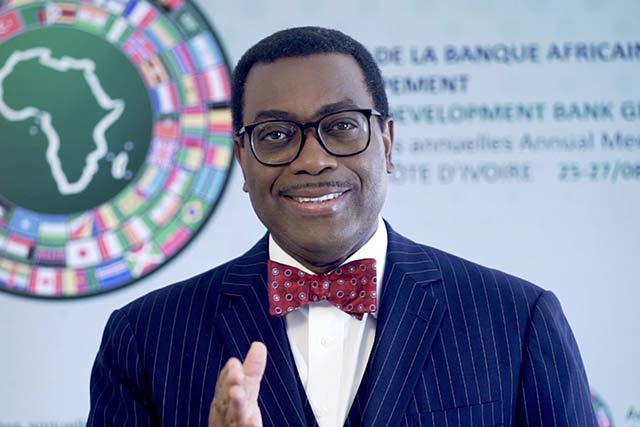In a bold and strategic call for economic sovereignty and sustainable development, the President of the African Development Bank (AfDB), Akinwumi Adesina, has advocated for African countries to break free from the cycle of dependency on natural resource-backed loans. Adesina’s remarks come at a crucial juncture, as many African nations grapple with the challenges of debt sustainability and the need for diversified economic strategies.

For decades, African countries have relied heavily on natural resources such as oil, minerals, and agricultural commodities to secure loans from international lenders. These loans, often collateralized by the country’s natural wealth, have provided short-term financial relief but have also perpetuated a cycle of debt dependency, environmental degradation, and economic vulnerability.
Speaking at a high-level forum on Africa’s debt sustainability, Adesina emphasized the urgent need for African nations to shift away from reliance on natural resource-backed loans. He stressed that such loans not only exacerbate debt burdens but also fail to catalyze sustainable economic growth and development.
Adesina urged African governments to pursue alternative financing mechanisms, including innovative debt instruments, public-private partnerships, and investment in human capital and infrastructure. He emphasized the importance of mobilizing domestic resources, promoting industrialization, and fostering entrepreneurship as key drivers of economic transformation and resilience.
Breaking free from the dependence on natural resource-backed loans poses significant challenges for many African countries. Weak governance structures, limited access to capital markets, and entrenched interests in the extractive industries present formidable obstacles to diversification and sustainable development.
However, Adesina’s call also highlights the immense potential and opportunities for African nations to chart a new path towards economic self-reliance and prosperity. With abundant renewable energy resources, a burgeoning young population, and a growing middle class, Africa possesses the ingredients for a vibrant and resilient economy.
Adesina’s vision for a debt-free and prosperous Africa underscores the need for bold and transformative leadership at both the national and continental levels. African governments must prioritize investments in human capital, education, and technology to unlock the full potential of their economies and create opportunities for all citizens.
At the same time, international partners and multilateral institutions must support African countries in their efforts to diversify their economies and reduce dependence on natural resource extraction. This includes providing technical assistance, fostering sustainable investment, and promoting inclusive growth and development.
- Tags: AfDB, Akinwunmi Adesina, SDGs





